-

-
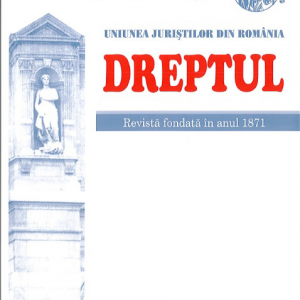 The legislation on the matter of stamp duties, although it should be free of problems of interpretation, is no exception to the fact that the interpretation is the one that generates problems in the application of legal norms. The related controversies reveal that the current regulation inclusive is far from the desideratum to maintain a fair balance between the public interest to collect these budgetary resources in the quantum envisaged by the legislator and the interest of the litigant not to have the relevant legislation interpreted to his detriment. There are difficulties concerning the determination in practice of the actions which the legislator regulates generically by formulating „cash assessable actions and claims”, a phrase used in Article 3 (1) of the Government Emergency Ordinance No 80/2013. The same situation we encounter in the case of applications determined by the phrase „applications not assessable in cash”, phrase used in Article 27 of the Government Emergency Ordinance No 80/2013, with which the legislator intends to cover all the categories of applications not regulated in the previous texts. Other difficulties, revealed inclusively by the decisions of the High Court of Cassation and Justice, concern the interpretation of the phrase „different finality”, used in Article 34 (1) of the Government Emergency Ordinance No 80/2013, for the situation of the actions with multiple claims. Since these three phrases evoke genuine principles underlying the manner of regulation used by the legislator in the matter, by the controversies reviewed, the study argues either the necessity of the minimum approach of defining the terms contained therein by the author of the normative act, or that of rewriting it pursuant to an inventory of the objects of the claims encountered in the judicial practice. This inventory is easy to obtain by the legislator from the courts, with the necessity to update it, after taking over in the normative act of domain, either by the regulations that generate new categories of applications addressed to the justice, or by amending accordingly the normative act having as object exclusively the stamp duty fees. However, this regulatory manner is used by the legislator in the legislation by which it establishes tax obligations, duties and taxes respectively. It is easy to imagine the implications of some norms susceptible to interpretation in this latter matter, which, in essence, has the same nature as the one in question.
The legislation on the matter of stamp duties, although it should be free of problems of interpretation, is no exception to the fact that the interpretation is the one that generates problems in the application of legal norms. The related controversies reveal that the current regulation inclusive is far from the desideratum to maintain a fair balance between the public interest to collect these budgetary resources in the quantum envisaged by the legislator and the interest of the litigant not to have the relevant legislation interpreted to his detriment. There are difficulties concerning the determination in practice of the actions which the legislator regulates generically by formulating „cash assessable actions and claims”, a phrase used in Article 3 (1) of the Government Emergency Ordinance No 80/2013. The same situation we encounter in the case of applications determined by the phrase „applications not assessable in cash”, phrase used in Article 27 of the Government Emergency Ordinance No 80/2013, with which the legislator intends to cover all the categories of applications not regulated in the previous texts. Other difficulties, revealed inclusively by the decisions of the High Court of Cassation and Justice, concern the interpretation of the phrase „different finality”, used in Article 34 (1) of the Government Emergency Ordinance No 80/2013, for the situation of the actions with multiple claims. Since these three phrases evoke genuine principles underlying the manner of regulation used by the legislator in the matter, by the controversies reviewed, the study argues either the necessity of the minimum approach of defining the terms contained therein by the author of the normative act, or that of rewriting it pursuant to an inventory of the objects of the claims encountered in the judicial practice. This inventory is easy to obtain by the legislator from the courts, with the necessity to update it, after taking over in the normative act of domain, either by the regulations that generate new categories of applications addressed to the justice, or by amending accordingly the normative act having as object exclusively the stamp duty fees. However, this regulatory manner is used by the legislator in the legislation by which it establishes tax obligations, duties and taxes respectively. It is easy to imagine the implications of some norms susceptible to interpretation in this latter matter, which, in essence, has the same nature as the one in question. -
 Arbitration is an alternative private jurisdiction to the State jurisdiction, in order to settle civil litigations. The private character of this jurisdiction is marked by the decisive role of the autonomy of will of the parties in the organization and conduct of arbitration, in the establishment of the arbitral tribunal, in which the arbitrators nominated by the parties are not designated by a public authority or by a public institution. The arbitrary source of the arbitration merges with the judicial nature conferred by the judgment pronounced, which enjoys the authority of res judicata and is executed in exactly the same way as any judgment pronounced by a state court. As a result, arbitration has a dual, contractual nature, through its source, and jurisdictional, through the judgment pronounced. In the present study several objectives have been pursued on the subject discussed, namely establishing the legal nature of the arbitral jurisdiction, the types of arbitration convention and its role, the elements of convergence between the arbitration clause and compromise, the formal requirements of the arbitration convention, its limits and the consequences and the exceptions from these limits in terms of trial, the conditions of validity of the arbitration convention, its effects and its effectiveness, the causes of cessation of the arbitration convention.
Arbitration is an alternative private jurisdiction to the State jurisdiction, in order to settle civil litigations. The private character of this jurisdiction is marked by the decisive role of the autonomy of will of the parties in the organization and conduct of arbitration, in the establishment of the arbitral tribunal, in which the arbitrators nominated by the parties are not designated by a public authority or by a public institution. The arbitrary source of the arbitration merges with the judicial nature conferred by the judgment pronounced, which enjoys the authority of res judicata and is executed in exactly the same way as any judgment pronounced by a state court. As a result, arbitration has a dual, contractual nature, through its source, and jurisdictional, through the judgment pronounced. In the present study several objectives have been pursued on the subject discussed, namely establishing the legal nature of the arbitral jurisdiction, the types of arbitration convention and its role, the elements of convergence between the arbitration clause and compromise, the formal requirements of the arbitration convention, its limits and the consequences and the exceptions from these limits in terms of trial, the conditions of validity of the arbitration convention, its effects and its effectiveness, the causes of cessation of the arbitration convention. -
 The Civil Code expressly introduces the porte-fort convention or the promise of another’s deed in Article 1283, regulation which takes over the institution which was created in the doctrine of the Civil Code of 1865. The current codification places the institution in the section regarding the effects of the contract, but in a subsection distinct from the one devoted to the consecration of the principle of relativity of the effects of the contract. Although the systematic treatment of the principle inevitably implies the exploration of the controversies on the real or apparent exceptions, the incorporation of the analysis of the porte-fort convention in this framework has made the novelty of this legal figure somehow obscured. This article intends to make a critical analysis of the porte-fort convention in the regulation of Article 1283 of the Civil Code also from the perspective of the comparative law, by pursuing in detail the legal regime in terms of notion, forms, nature, legal characters, conditions of validity and effects, as well as the applications of this institution.
The Civil Code expressly introduces the porte-fort convention or the promise of another’s deed in Article 1283, regulation which takes over the institution which was created in the doctrine of the Civil Code of 1865. The current codification places the institution in the section regarding the effects of the contract, but in a subsection distinct from the one devoted to the consecration of the principle of relativity of the effects of the contract. Although the systematic treatment of the principle inevitably implies the exploration of the controversies on the real or apparent exceptions, the incorporation of the analysis of the porte-fort convention in this framework has made the novelty of this legal figure somehow obscured. This article intends to make a critical analysis of the porte-fort convention in the regulation of Article 1283 of the Civil Code also from the perspective of the comparative law, by pursuing in detail the legal regime in terms of notion, forms, nature, legal characters, conditions of validity and effects, as well as the applications of this institution. -
 The Civil Code expressly introduces the porte-fort convention or the promise of another’s deed in Article 1283, regulation which takes over the institution which was created in the doctrine of the Civil Code of 1865. The current codification places the institution in the section regarding the effects of the contract, but in a subsection distinct from the one devoted to the consecration of the principle of relativity of the effects of the contract. Although the systematic treatment of the principle inevitably implies the exploration of the controversies on the real or apparent exceptions, the incorporation of the analysis of the porte-fort convention in this framework has made the novelty of this legal figure somehow obscured. This article intends to make a critical analysis of the porte-fort convention in the regulation of Article 1283 of the Civil Code also from the perspective of the comparative law, by pursuing in detail the legal regime in terms of notion, forms, nature, legal characters, conditions of validity and effects, as well as the applications of this institution.
The Civil Code expressly introduces the porte-fort convention or the promise of another’s deed in Article 1283, regulation which takes over the institution which was created in the doctrine of the Civil Code of 1865. The current codification places the institution in the section regarding the effects of the contract, but in a subsection distinct from the one devoted to the consecration of the principle of relativity of the effects of the contract. Although the systematic treatment of the principle inevitably implies the exploration of the controversies on the real or apparent exceptions, the incorporation of the analysis of the porte-fort convention in this framework has made the novelty of this legal figure somehow obscured. This article intends to make a critical analysis of the porte-fort convention in the regulation of Article 1283 of the Civil Code also from the perspective of the comparative law, by pursuing in detail the legal regime in terms of notion, forms, nature, legal characters, conditions of validity and effects, as well as the applications of this institution. -
 The 1995 UNIDROIT Convention in Rome established a minimum body of common legal rules for the protection of cultural heritage. The essential rules of the Convention are: 1) the possessor of a cultural object which has been stolen shall return it; 2) access to justice by filing a request with the court or other competent authorities of the Contracting State where the cultural property is located, for its restitution; the possibility for the parties to submit their dispute either to a court or other competent authority or to arbitration (Article 8); 3) the right of the bona fides holder of the stolen cultural property to be paid, at the time of restitution, a fair compensation; the correlative right of the paying claimant to request reimbursement from another person (Article 4).
The 1995 UNIDROIT Convention in Rome established a minimum body of common legal rules for the protection of cultural heritage. The essential rules of the Convention are: 1) the possessor of a cultural object which has been stolen shall return it; 2) access to justice by filing a request with the court or other competent authorities of the Contracting State where the cultural property is located, for its restitution; the possibility for the parties to submit their dispute either to a court or other competent authority or to arbitration (Article 8); 3) the right of the bona fides holder of the stolen cultural property to be paid, at the time of restitution, a fair compensation; the correlative right of the paying claimant to request reimbursement from another person (Article 4). -
 The study is devoted to the legislative convergences and divergences existing at the level of the European countries regarding the functioning of small and mediumsized companies. The first part of this approach emphasizes the important role of small and medium-sized companies within the national economies, including their contribution to the formation of the gross domestic product. In the author’s opinion, the support granted by the political and legislative powers, including by the doctrine, is not in accordance with the contribution brought by the small and medium-sized companies to the development of the national economies. Starting from the finding that the typical legal form of functioning of the small and medium-sized companies is represented by the limited liability companies, the author presents the most relevant aspects regarding their establishment, organization and functioning. A particular analysis is also carried out in relation to Directive 2017/828/EC, a European document that is likely to significantly promote appropriate normative convergences. The author also emphasizes some positive trends manifested at the level of the European Union, such as those represented by the elimination of the fixed minimum share capital or by the reduction thereof. Among the legislative divergences, the author analyzes those determined by the conflicts of interests between the members of the limited liability company. In particular, the author takes into account the divergences concerning the right of the minority members, whose interests are threatened by the actions of the majority members, to freely exit that company.
The study is devoted to the legislative convergences and divergences existing at the level of the European countries regarding the functioning of small and mediumsized companies. The first part of this approach emphasizes the important role of small and medium-sized companies within the national economies, including their contribution to the formation of the gross domestic product. In the author’s opinion, the support granted by the political and legislative powers, including by the doctrine, is not in accordance with the contribution brought by the small and medium-sized companies to the development of the national economies. Starting from the finding that the typical legal form of functioning of the small and medium-sized companies is represented by the limited liability companies, the author presents the most relevant aspects regarding their establishment, organization and functioning. A particular analysis is also carried out in relation to Directive 2017/828/EC, a European document that is likely to significantly promote appropriate normative convergences. The author also emphasizes some positive trends manifested at the level of the European Union, such as those represented by the elimination of the fixed minimum share capital or by the reduction thereof. Among the legislative divergences, the author analyzes those determined by the conflicts of interests between the members of the limited liability company. In particular, the author takes into account the divergences concerning the right of the minority members, whose interests are threatened by the actions of the majority members, to freely exit that company. -
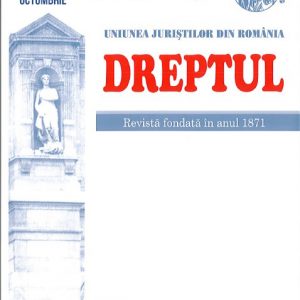 Dacă, în ceea ce privește societățile pe acțiuni, legiuitorul a menționat expres în art. 118 alin. (1) din Legea nr. 31/1990 privind societățile posibilitatea ca în convocatorul pentru prima adunare generală să se fixeze ziua și ora pentru cea de-a doua adunare generală, când cea dintâi nu se ține, o asemenea posibilitate nu este prevăzută și pentru societățile cu răspundere limitată. O astfel de mențiune nu echivalează cu o convocare legală pentru cea de-a doua adunare generală, cerința celei de-a doua convocări rezultând din mențiunea expresă din cuprinsul art. 193 alin. (3) din Legea nr. 31/1990.
Dacă, în ceea ce privește societățile pe acțiuni, legiuitorul a menționat expres în art. 118 alin. (1) din Legea nr. 31/1990 privind societățile posibilitatea ca în convocatorul pentru prima adunare generală să se fixeze ziua și ora pentru cea de-a doua adunare generală, când cea dintâi nu se ține, o asemenea posibilitate nu este prevăzută și pentru societățile cu răspundere limitată. O astfel de mențiune nu echivalează cu o convocare legală pentru cea de-a doua adunare generală, cerința celei de-a doua convocări rezultând din mențiunea expresă din cuprinsul art. 193 alin. (3) din Legea nr. 31/1990. -
 Law no. 1/2011 on the National Education, effective since February 2011, under Art. 289 regulated anew the regime on the legal relationships of employment after retirement age for teaching and research staff in higher education in Romania (public, private or religious). In this respect, the above mentioned bill, after having established the principle that this staff shall retire at the age of 65, sets to rights terms under which academics and researchers may continue their activity in higher education establishments, following retirement. Study hereby is to review these terms.
Law no. 1/2011 on the National Education, effective since February 2011, under Art. 289 regulated anew the regime on the legal relationships of employment after retirement age for teaching and research staff in higher education in Romania (public, private or religious). In this respect, the above mentioned bill, after having established the principle that this staff shall retire at the age of 65, sets to rights terms under which academics and researchers may continue their activity in higher education establishments, following retirement. Study hereby is to review these terms. -
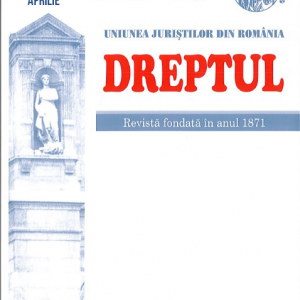 The Romanian Criminal Code in force (in 1969) does not mention domestic discipline among the reasons removing the criminal nature of the deed (art. 44-51). Similarly, the new Romanian Criminal Code (Law no. 286/2009) does not stipulate domestic discipline among the supporting reasons (art. 18-22) or among the reasons of non-imputability (art. 23-31). The following question arises under these conditions: Will the parent who pulls his / her child by the ears when committing acts of disorder in the family or behaves violently with his colleagues be convicted? Some lawyers and teachers respond affirmatively, others negatively, thus creating discussions about the existence of a right of discipline. In this study, the authors analyze domestic discipline in respect of the parents, educators and military, arguing that they enjoy a moderate and limited right of discipline, which is provided in some cases by law and in others is not.
The Romanian Criminal Code in force (in 1969) does not mention domestic discipline among the reasons removing the criminal nature of the deed (art. 44-51). Similarly, the new Romanian Criminal Code (Law no. 286/2009) does not stipulate domestic discipline among the supporting reasons (art. 18-22) or among the reasons of non-imputability (art. 23-31). The following question arises under these conditions: Will the parent who pulls his / her child by the ears when committing acts of disorder in the family or behaves violently with his colleagues be convicted? Some lawyers and teachers respond affirmatively, others negatively, thus creating discussions about the existence of a right of discipline. In this study, the authors analyze domestic discipline in respect of the parents, educators and military, arguing that they enjoy a moderate and limited right of discipline, which is provided in some cases by law and in others is not. -
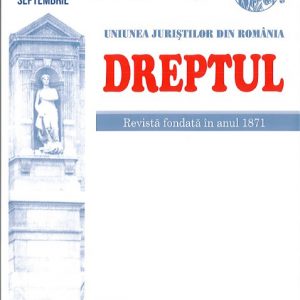 The legal epistemology justifies the interest of this study for the relations which are established between the notions of branch of law, of sub-branch of law, of legal institution, as well as their relations with the forms of legal liability which they regulate. In the problems of the dynamics of the relations between the branches of law and the forms of legal liability the rule is that every branch of the law knows or generates at least one form of legal liability. Starting with the theoretical challenge launched by Professor Antonie Iorgovan, regarding the elements that announce the appearance of a new form of legal liability within or outside a branch of law, the novelty proposed by this study consists in the approach of the inverse relation, precisely of the capacity of a new form of legal liability to generate a new branch of law, as well as its reception by a legal science of branch. The verification of the validity of the capacity of mutual cogeneration between the forms of legal liability and the branches of law will be achieved by means of the examples of the relations established between the ecological liability and the environmental law, the objective liability and the insurance law, the managerial liability and a possible managerial law on the ground of legal methodology.
The legal epistemology justifies the interest of this study for the relations which are established between the notions of branch of law, of sub-branch of law, of legal institution, as well as their relations with the forms of legal liability which they regulate. In the problems of the dynamics of the relations between the branches of law and the forms of legal liability the rule is that every branch of the law knows or generates at least one form of legal liability. Starting with the theoretical challenge launched by Professor Antonie Iorgovan, regarding the elements that announce the appearance of a new form of legal liability within or outside a branch of law, the novelty proposed by this study consists in the approach of the inverse relation, precisely of the capacity of a new form of legal liability to generate a new branch of law, as well as its reception by a legal science of branch. The verification of the validity of the capacity of mutual cogeneration between the forms of legal liability and the branches of law will be achieved by means of the examples of the relations established between the ecological liability and the environmental law, the objective liability and the insurance law, the managerial liability and a possible managerial law on the ground of legal methodology. -
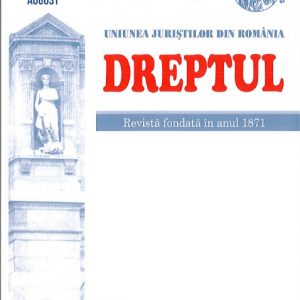 The author discusses the close correlation between the regulation of competition and the regulation on the protection of the consumers’ interests, involving some difficulties in distinguishing between them. That is why there is the tendency that some regulations protect both the ensuring of competition and the consumers’ interests, this ambivalence emphasizing the importance that is given in the contemporary society to the consumption law, which justifies a whole series of derogations from the principle of freedom of trade. Discussing this issue involves an examination of both the regulation of the contractual obligations and the regulation of the commercial practices. The consumer who wants to purchase a product usually has a double handicap: knows too little the characteristics of the product that is being offered and, as such, is often in the position to sign a previously elaborated contract which he can not control or understand. So it was necessary the intervention of the legislator, imposing the obligation to inform every consumer, being prohibited to stipulate unfair terms. As far as the regulation of the commercial practices is concerned, the same conclusion is drawn, namely that a consumer is exposed to a double risk: that of being deceived about the nature or the characteristics of the goods which it acquires, as well as that of being incited, by fictitious or illusory promises, to buy or to resort to the supply of a service. Consequently, the legislator has stepped in by elaborating regulations both in relation to the illegal commercial practices and with regard to the commercial publicity. The author of this article presents all these aspects having in view the scale of the legal situations that can arise and the required solutions.
The author discusses the close correlation between the regulation of competition and the regulation on the protection of the consumers’ interests, involving some difficulties in distinguishing between them. That is why there is the tendency that some regulations protect both the ensuring of competition and the consumers’ interests, this ambivalence emphasizing the importance that is given in the contemporary society to the consumption law, which justifies a whole series of derogations from the principle of freedom of trade. Discussing this issue involves an examination of both the regulation of the contractual obligations and the regulation of the commercial practices. The consumer who wants to purchase a product usually has a double handicap: knows too little the characteristics of the product that is being offered and, as such, is often in the position to sign a previously elaborated contract which he can not control or understand. So it was necessary the intervention of the legislator, imposing the obligation to inform every consumer, being prohibited to stipulate unfair terms. As far as the regulation of the commercial practices is concerned, the same conclusion is drawn, namely that a consumer is exposed to a double risk: that of being deceived about the nature or the characteristics of the goods which it acquires, as well as that of being incited, by fictitious or illusory promises, to buy or to resort to the supply of a service. Consequently, the legislator has stepped in by elaborating regulations both in relation to the illegal commercial practices and with regard to the commercial publicity. The author of this article presents all these aspects having in view the scale of the legal situations that can arise and the required solutions.
